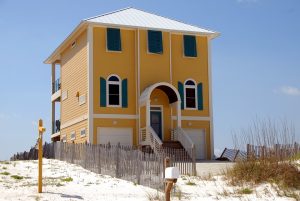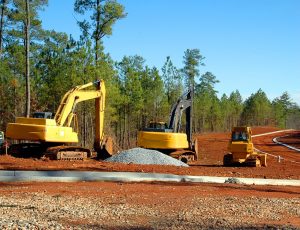When you own rental property with it comes a certain amount of risk. There are ways to lessen the amount of risk your or your business faces by properly preparing your business and purchasing adequate insurance coverage. Here are 3 types of insurance you or your business need to secure when you own rental property.
If you own Rental Property, you need to determine what kinds of insurance your business actually needs?

Three Policies every rental property owner should have.
General Liability Coverage
General Liability Insurance in most cases is the first type of insurance a business or investor purchases. General Liability and Workers’ Compensation Coverage are required by law in 48 out of 50 states. For this reason, most business owners start with these two coverages and later determine if they need additional insurance. GL Insurance covers a property owner for any liability they might face to thirds parties. Some liabilities you may face include when a tenant or visitor are injured due to the landlord’s negligence, when a property maintenance issue results in a tenants’ injury or personal property loss or when a tenant is injured as a result of the landlord’s failure to keep the premises safe and in good working order. Now these are just a couple of the types of liability a property owner may face. Other risks you or your business face include losses due to fire, storm, tenant or employee theft and even discrimination lawsuits filed by tenants or employees. A lawsuit does not have to be legitimate to cause you or your business to incur enormous legal costs. Having the proper insurance in place can limit the damages to you or your business if you do face a lawsuit.
Commercial Property Insurance
Commercial Property Insurance is frequently the second coverage a property owner will secure. When looking to acquire a commercial insurance policy it is important to secure an accurate valuation of the property. A Commercial Property Insurance Policy are just a little bit different than a personal home owners policy in that they are sold on either a replacement cost or on an agreed upon value. For most businesses the replacement cost policy is almost always the best type of policy to secure. This type of policy will pay to not only rebuild the property but also to demolish and haul away any and all debris. This additional cost can be substantial.
Business Loss of Income
Business Loss of Income Coverage is the third and final type of insurance all rental property owners should purchase. A business loss of income insurance policy will cover you or your business for the income lost during the period when a rental property is uninhabitable. For example, if your building is damaged by a hurricane; this coverage kicks in to cover missed rent payments you or your business would have collected while the property is being repaired. Frequently this coverage is paid based upon documented actual revenue, which is good for property owners because you have a lease stating how much revenue the property generates. Depending upon the policy you can collect payments for lost rent for up to 12 months after a loss.


 Now many business owners have an initial reaction to being offered
Now many business owners have an initial reaction to being offered 